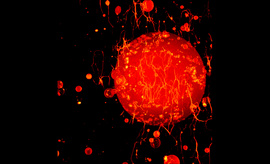Role of DNA Repair Variants and Diagnostic Radiology Exams in Differentiated Thyroid Cancer Risk: A Pooled Analysis of Two Case–Control Studies
Abstract
Background:
Given the increased use and diversity of diagnostic procedures, it is important to understand genetic susceptibility to radiation-induced thyroid cancer.
Methods:
On the basis of self-declared diagnostic radiology examination records in addition to existing literature, we estimated the radiation dose delivered to the thyroid gland from diagnostic procedures during childhood and adulthood in two case–control studies conducted in France. A total of 1,071 differentiated thyroid cancer (DTC) cases and 1,188 controls from the combined studies were genotyped using a custom-made Illumina OncoArray DNA chip. We focused our analysis on variants in genes involved in DNA damage response and repair pathways, representing a total of 5,817 SNPs in 571 genes. We estimated the OR per milli-Gray (OR/mGy) of the radiation dose delivered to the thyroid gland using conditional logistic regression. We then used an unconditional logistic regression model to assess the association between DNA repair gene variants and DTC risk. We performed a meta-analysis of the two studies.
Results:
The OR/mGy was 1.02 (95% confidence interval, 1.00–1.03). We found significant associations between DTC and rs7164173 in CHD2 (P = 5.79 × 10−5), rs6067822 in NFATc2 (P = 9.26 × 10−5), rs1059394 and rs699517 both in ENOSF1/THYS, rs12702628 in RPA3, and an interaction between rs7068306 in MGMT and thyroid radiation doses (P = 3.40 × 10−4).
Conclusions:
Our results suggest a role for variants in CDH2, NFATc2, ENOSF1/THYS, RPA3, and MGMT in DTC risk.
Impact:
CDH2, NFATc2, ENOSF1/THYS, and RPA3 have not previously been shown to be associated with DTC risk.


